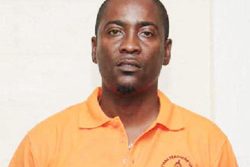A series of actions and events since its election to office in May of last year, seems to be giving the People’s Partnership government an aura of instability, or at least inconsistency, in its behaviour. Virtually from its beginning various actors in the government seemed to have been determined to push defeated Prime Minister Patrick Manning into a corner, largely on issues of implied corruption or extravagance. Indeed the People’s Partnership had very much run its election campaign on those issues, well aware of the fact that the internal opposition in Manning’s People’s National Movement, led largely by its current leader, Dr Keith Rowley, was already causing some amount of embarrassment and unpopularity for Manning on this score. But on the issues of extravagance and corruption, related in particular to the construction of a new Diplomatic Centre and a Cultural Centre, the PP government seemed, after the elections, to turn around, as Prime Minister Kamla Persad Bissessar quickly occupied the building and the doors of the Cultural Centre were opened to large, apparently appreciative audiences.
Subsequently Prime Minister Bissessar, seeking to reinforce her electoral accusation that Manning had been too free with the country’s monies in respect of assistance to other Caribbean states, proceeded to use the phrase which has subsequently become notorious, that “Trinidad and Tobago is not an ATM machine.” But her intended objective seems to have achieved the opposite effect both at home and in the Caribbean where, in spite of her various attempts to explain what she meant, her remarks were taken as extremely insensitive. As Prime Minister Stephenson King put it, it was simply better to “forgive and forget.”
Then further, following pre-election expressions of reservation about the purchase of Air Jamaica by the Manning government and its absorption into Caribbean Airlines, CAL, (formerly BWIA) with a minority share ownership by Jamaica, her Minister of Works began an altercation with the Board of CAL, headed by a scion of the powerful Issa Nicholas family, from which he had to eventually back off after making all of sorts of noises about the powers with which his ministerial office provided him.
And next, the Chairman of the Police Services Commission, a former Speaker of the House, Nizam Mohammed, found himself in an altercation with a police constable who had prohibited him from driving in a certain direction, a prohibition which he chose to disobey after unsuccessfully seeking the intercession of the Police Commissioner. The matter rests in abeyance, to the embarrassment of the government unwilling to accept that Mohammed should be relieved of his chairmanship.
Since then, former Prime Minister Manning was challenged in the House of Representatives by the Attorney-General to explain the disappearance of a new grand piano (one of ten purchased by the previous government) at the Diplomatic Centre, with more than a clear implication that the former Prime Minister had removed it. But the piano having been easily located, the Attorney General, one of the Prime Minister’s young and aggressive lieutenants, was adamant that no apology was due to Manning.
Many of these incidents might be put down to over-enthusiasm by a new and inexperienced government, with a Prime Minister unwilling to constrain her more vigorous and powerful colleagues. This has been interpreted as weakness, and this interpretation has been reinforced by indications that in the two-party (with minor allied groupings) coalition which constitutes the People’s Partnership, she has seemed unwilling to divide the spoils of office equitably, giving undue presence and influence to members of her United National Congress. The Congress of the People, headed by Minister of Finance Winston Dookeran, seems to have been in the forefront of such allegations, seeing them as evidence of the UNC’s desire to build up its own strength in terms of future elections. But Dookeran himself has come under fire for being insufficiently energetic and decisive, particularly in terms of not giving a clear indication of how the government is going to resolve the matter of funds due to policy-holders of the collapsed Clico insurance company.
But the issue of the Prime Minister’s insufficient hold on her government, and unwillingness to deal with local baronies has come to the fore with the so-called Strategic Services Agency (SSA) scandal. In this, a relatively young, inexperienced, and clearly unqualified female employee of the SSA received Cabinet’s approval for appointment to the post of Director of the Strategic Intelligence Agency (SIA) internal institution of the SSA. A veritable scandal has now developed as it has become clear that the Minister of National Security, former chief of the Trinidad & Tobago Defence Force (and former Contingent Commander of the Caricom peacekeeping forces in Haiti, 1994-95) Brigadier John Sandy, objected to the appointment, but yet felt constrained to announce it in the House of Representatives. As the local media have pursued this matter with much enthusiasm, revealing hidden fact after hidden fact, the Prime Minister, to most people’s disbelief, insists that nothing more than a simple error has been made. In the face of indications that the young employee would appear to be close to her entourage, she insists that the country, and in particular the media (much of which was sympathetic to the People’s Partnership during the election campaign), should now “move on.”
But the media refuses to agree. The view is being expressed that the Westminster conventions, from which the Trinidad Parliament derives its own norms and conventions, would suggest that at least the Minister of National Security should make himself the sacrificial lamb and resign his position. (Earlier on, it had also fallen to Sandy to explain to Parliament that the Commissioner of Police would not be proceeding against Chairman Nizam Mohammed, because there had been “a misunderstanding”). In the face of the earlier incidents, particularly the resistance to swift action on the Mohammed matter, now coupled with the present controversy, the likelihood is that, so early in its tenure, a large and widespread cynicism is going to characterize the Trinidadians’ perceptions of the government.





